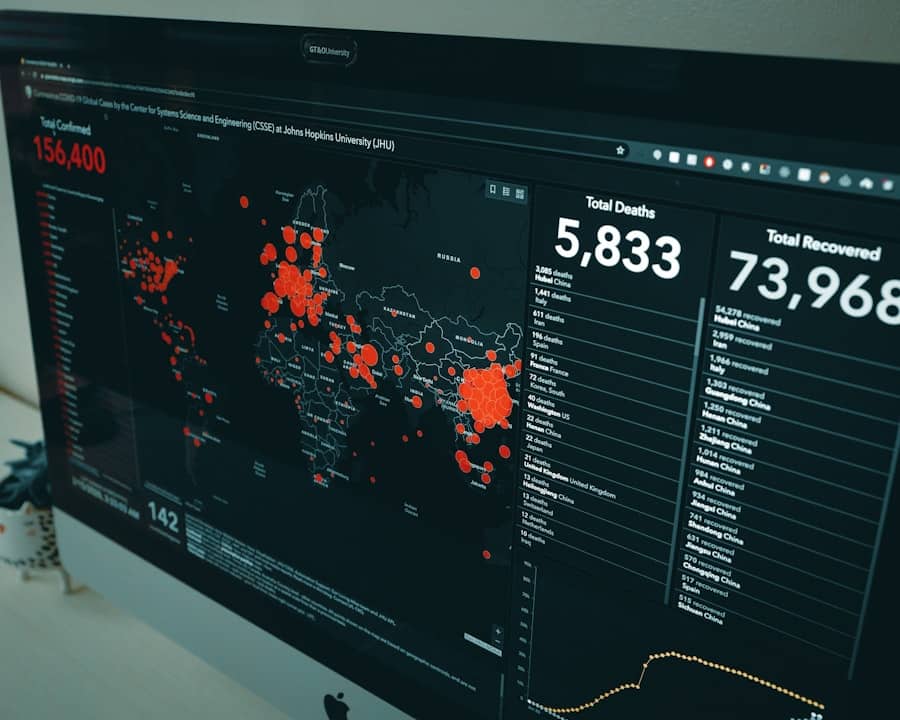In an increasingly interconnected world, the regulation of data has become a paramount concern for governments, organizations, and individuals alike. International data laws are designed to govern how data is collected, processed, stored, and shared across borders. These laws aim to protect personal information and ensure that individuals’ rights are respected in a digital landscape that often transcends national boundaries.
The General Data Protection Regulation (GDPR) in the European Union is one of the most notable examples of such legislation, setting a high standard for data protection and privacy. It has inspired similar regulations in various jurisdictions, reflecting a global shift towards more stringent data governance. The complexity of international data laws arises from the diverse legal frameworks that exist across different countries.
Each jurisdiction may have its own set of rules regarding data protection, which can lead to challenges for multinational corporations that operate in multiple regions. For instance, while GDPR emphasizes the rights of individuals and imposes heavy fines for non-compliance, other countries may have less rigorous standards. This disparity necessitates a nuanced understanding of the legal landscape and the implementation of robust compliance strategies to navigate the intricacies of international data laws effectively.
Key Takeaways
- International data laws are complex and constantly evolving, requiring organizations to stay updated and compliant with regulations in different jurisdictions.
- AI plays a crucial role in helping organizations navigate and comply with international data laws by automating processes, analyzing large volumes of data, and identifying potential risks.
- AI can streamline data management by automating data classification, data mapping, and data governance, making it easier for organizations to track and manage their data across borders.
- Ensuring data security and privacy is a key aspect of international data law compliance, and AI can help by detecting and mitigating potential security threats and ensuring data privacy measures are in place.
- Addressing cross-border data transfers is a major challenge for organizations, but AI can assist in ensuring compliance with data localization requirements and managing the complexities of international data transfers.
The Role of AI in Compliance
Artificial Intelligence (AI) has emerged as a transformative force in various sectors, including compliance with international data laws. By leveraging machine learning algorithms and advanced analytics, organizations can enhance their ability to monitor and manage data in accordance with legal requirements. AI can automate the identification of sensitive information, ensuring that organizations are aware of what data they hold and how it is being used.
This capability is particularly crucial in light of regulations like GDPR, which mandates organizations to maintain comprehensive records of their data processing activities. Moreover, AI can assist in real-time monitoring of compliance with data protection regulations. By analyzing vast amounts of data at unprecedented speeds, AI systems can detect anomalies or potential breaches that may indicate non-compliance.
For example, if an organization inadvertently processes personal data without proper consent, AI tools can flag this activity for immediate review. This proactive approach not only helps organizations avoid hefty fines but also fosters a culture of accountability and transparency in data management practices.
Streamlining Data Management with AI

The integration of AI into data management processes can significantly streamline operations and enhance efficiency. Traditional methods of data management often involve manual processes that are time-consuming and prone to human error. In contrast, AI-driven solutions can automate routine tasks such as data classification, tagging, and storage optimization.
Furthermore, AI can facilitate better decision-making by providing insights derived from data analytics. Organizations can utilize predictive analytics to forecast potential compliance risks based on historical data patterns.
For instance, if an organization notices a trend of increased data access requests during specific periods, it can proactively implement measures to ensure compliance during those times. This level of foresight is invaluable in maintaining adherence to international data laws while also optimizing resource allocation.
Ensuring Data Security and Privacy
Data security and privacy are at the forefront of international data laws, and AI plays a critical role in enhancing these aspects. With the rise of cyber threats and data breaches, organizations must adopt robust security measures to protect sensitive information. AI technologies can bolster security protocols by employing advanced threat detection systems that analyze network traffic and user behavior to identify potential vulnerabilities.
Machine learning algorithms can learn from past incidents to improve their predictive capabilities, allowing organizations to stay one step ahead of cybercriminals. In addition to threat detection, AI can also assist in implementing privacy-preserving techniques such as differential privacy and encryption. These methods ensure that personal data is anonymized or encrypted before being processed or shared, thereby minimizing the risk of exposure.
For example, organizations can use AI to generate synthetic datasets that retain the statistical properties of real data without compromising individual privacy. This approach not only complies with legal requirements but also enables organizations to leverage valuable insights without jeopardizing user confidentiality.
Addressing Cross-Border Data Transfers
One of the most challenging aspects of international data laws is managing cross-border data transfers. Different countries have varying regulations regarding the transfer of personal information across their borders, which can complicate global business operations.
AI can facilitate compliance with these regulations by automating the assessment of third-party vendors and their data protection practices. Organizations can deploy AI-driven tools to evaluate whether a vendor meets the necessary compliance standards before engaging in cross-border data transfers. Additionally, AI can help organizations maintain detailed records of data flows and processing activities, ensuring transparency and accountability in their operations.
By leveraging AI for these tasks, organizations can navigate the complexities of cross-border data transfers more effectively while minimizing legal risks.
Automating Compliance Reporting

Automating Compliance Reporting
By integrating AI with existing data management systems, organizations can create dynamic reports that reflect their current compliance status without the need for labor-intensive manual input.
Streamlining GDPR Reporting
For example, an organization subject to GDPR may be required to submit regular reports detailing its data processing activities and compliance measures. AI can automatically compile this information from various sources within the organization, ensuring accuracy and timeliness in reporting.
Proactive Compliance Management
Furthermore, AI-driven reporting tools can provide insights into trends and areas for improvement, enabling organizations to proactively address potential compliance gaps before they escalate into more significant issues.
Challenges and Limitations of AI in Compliance
Despite the numerous advantages that AI offers in the realm of compliance with international data laws, there are also challenges and limitations that organizations must consider. One significant concern is the potential for bias in AI algorithms, which can lead to discriminatory outcomes if not properly managed. For instance, if an AI system is trained on historical data that reflects societal biases, it may inadvertently perpetuate those biases in its decision-making processes.
This issue raises ethical questions about fairness and accountability in automated compliance systems. Additionally, the reliance on AI for compliance does not eliminate the need for human oversight. While AI can enhance efficiency and accuracy, it cannot fully replace the nuanced understanding that human experts bring to complex legal frameworks.
Organizations must strike a balance between leveraging AI technologies and ensuring that qualified personnel are involved in compliance efforts. This hybrid approach allows for a more comprehensive understanding of regulatory requirements while harnessing the power of AI to streamline processes.
The Future of AI in International Data Law Compliance
Looking ahead, the role of AI in international data law compliance is poised to expand further as technology continues to evolve. As regulatory frameworks become more sophisticated and dynamic, organizations will increasingly rely on AI-driven solutions to adapt to changing compliance landscapes. The integration of advanced technologies such as blockchain may also play a role in enhancing transparency and accountability in data management practices.
Moreover, as organizations become more aware of the ethical implications surrounding AI use in compliance, there will be a growing emphasis on developing responsible AI frameworks that prioritize fairness and transparency. This shift will likely lead to increased collaboration between technology developers, legal experts, and regulatory bodies to establish best practices for AI deployment in compliance contexts. In conclusion, while challenges remain, the potential for AI to revolutionize compliance with international data laws is immense.
By embracing these technologies thoughtfully and responsibly, organizations can navigate the complexities of global data governance while safeguarding individual rights and fostering trust in their operations.
In a related article, Best Software for Literature Review, the focus is on how researchers can utilize technology to streamline the process of conducting literature reviews. Just as AI is being used to streamline compliance with international data laws, researchers can leverage software tools to efficiently gather, organize, and analyze relevant literature for their studies. By embracing technology, both compliance professionals and researchers can enhance their productivity and effectiveness in their respective fields.
FAQs
What is AI compliance with international data laws?
AI compliance with international data laws refers to the use of artificial intelligence technology to ensure that businesses and organizations are adhering to the various data protection and privacy laws that exist across different countries and regions.
How does AI streamline compliance with international data laws?
AI streamlines compliance with international data laws by automating the process of monitoring, analyzing, and managing data to ensure that it meets the requirements of different laws and regulations. This can include tasks such as data classification, consent management, and risk assessment.
What are the benefits of using AI for compliance with international data laws?
Some benefits of using AI for compliance with international data laws include improved accuracy and efficiency in managing data, reduced risk of non-compliance, and the ability to adapt to changes in regulations more quickly.
What are some examples of AI tools used for compliance with international data laws?
Examples of AI tools used for compliance with international data laws include machine learning algorithms for data classification, natural language processing for analyzing legal documents, and predictive analytics for identifying potential compliance issues.
How does AI help businesses and organizations stay compliant with international data laws?
AI helps businesses and organizations stay compliant with international data laws by providing real-time insights into their data practices, identifying potential compliance risks, and automating the process of ensuring that data is handled in accordance with relevant laws and regulations.

